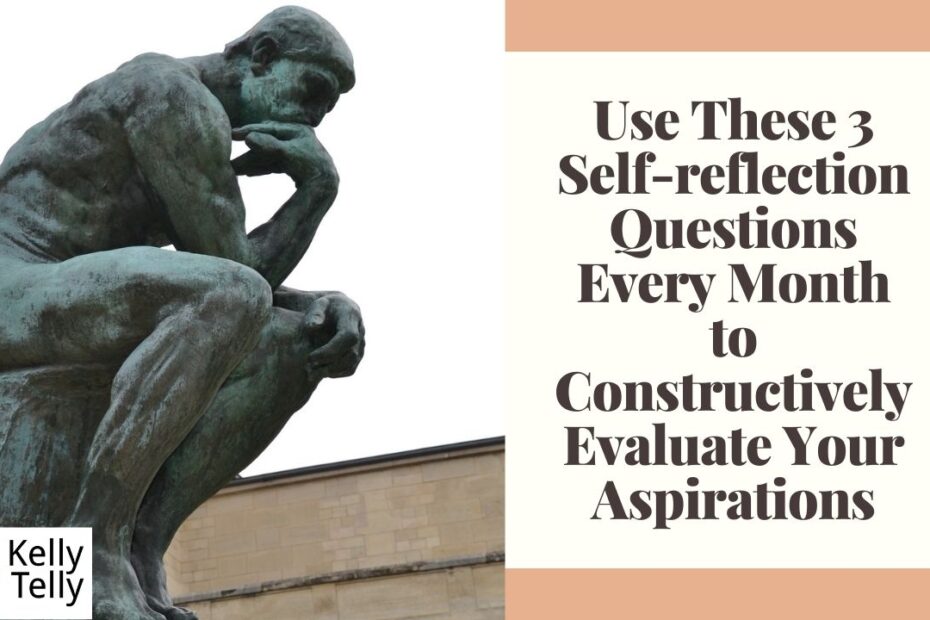We often treat the start of a new year as the ultimate blank slate when it comes to life planning and goal setting. How understandable, it offers new energy and a focus on purposeful reflection. It’s a brief halt, aided by the fact that the entire world appears to be moving at a slower pace than usual. But, as the months pass after January, it gets harder to stay aligned with our true desires and find the energy to pursue them.
But what if it doesn’t have to be that way? What if we can find a systematic way to review
and improve our goals consistently?
Yes, we can do this, by just simply changing our point of reference, from a year to a month.
Rather than waiting annually, we can build our own monthly self-reflection questions. In that way, we can appreciate the sensation of a clean slate at the end of each month, and schedule time for regular contemplation for the next month.

Lucky that you are here, as I’m about to give 3 questions in advance. What a headstart!
1. “At what point in this month do I feel the happiest?”
Yes, let’s start on a positive note first.
Think about what makes you the happiest this month. The keyword is you. For some people, it could be teeny tiny things, but it means a lot to you. It could be a virtual girl’s night, someone gave you a ride, eating very very good food, etc.
This will help you to explore and get to know yourself more. As mentioned, it’s different for everyone. It’s even different for you each month. Aside from taking positive note, you learn more about yourself and know what to do to motivate yourself in the future.

2. “What is the biggest mistake I did this month (and what I learned from it)?”
No one likes their mistakes to be pointed out bluntly by others. So why not point them out ourselves in the first place? It’ll hurt less, at least 😅
Jokes aside, the point of this question is not to bring you down, especially after the first, very positive question. This particular question is intended so that you learn what is needed, so that the mistake would be avoidable in the future.
Again, it’s unpleasant to have our mistakes being brought to the spotlight. So I’m not talking about the time where you go for a high five instead of a fist bump. Or the time where you accidently spill some water on your shorts.
Genuinely ask yourself, what do you perceive as the biggest mistake that you did for the month? Then, focus on examining the causes and other variables that might contribute to it. Next, draft out actionable steps that you can do to improve yourself, or to avoid the same mistake from happening again.
Additionally, the biggest mistake here does not necessarily need to be a one-time thing, like forgetting deadlines or presentation dates. It could be a small bad habit that you swear you’d get rid of, but you keep putting it off, contributing to unexpectedly a big mess in your month. For example, you might keep sleeping late because of late-night scrolling. You may think it’s nothing, but think about that accumulated sleep deprivation!
3. “What is my biggest accomplishment this month?”

This question is special as it motivates you and make you learn about yourself.
From your accomplishments, you can identify what your strengths are, and play them in the future. Not just to gain more accomplishment, but it can work in your favor, by using them to compensate your weaknesses and mistakes.
This may sound manipulative. But don’t take it from me. Take it from Stephen Covey instead:
“It’s not that we ignore our weaknesses; rather, we make our weaknesses irrelevant by working effectively with others so that we compensate for our weaknesses through their strengths and they compensate for their weaknesses through our strengths.”
There you have it. You don’t have to feel like waiting until the start of the new year to reflect old goals and set new goals. Now, every month is personal-growth oriented! This holds far more guarantee of consistent improvement, albeit small, rather than an annual planning of big changes.
All the best!

